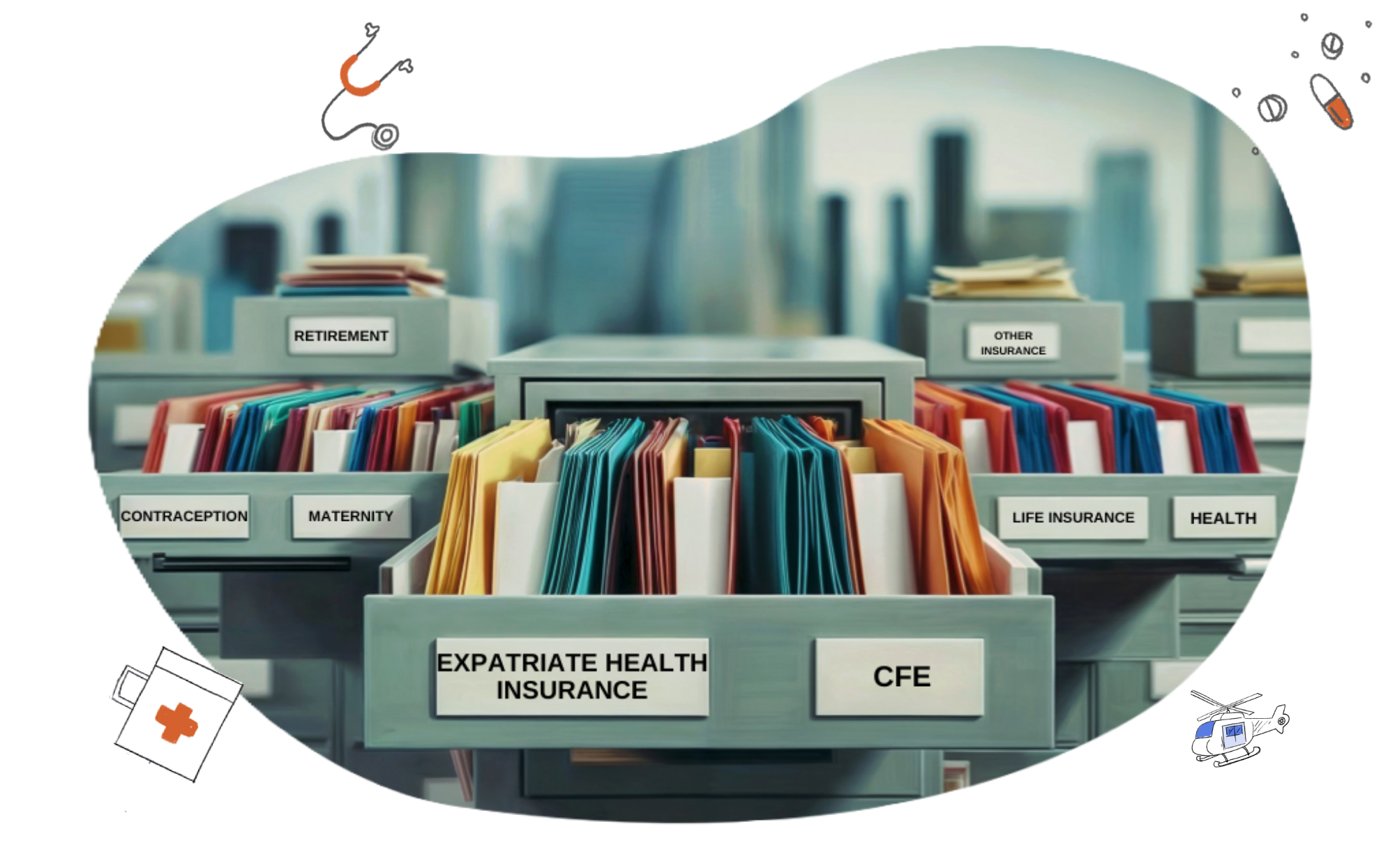
When a health problem can put an end to your plans

Even if this requirement is becoming increasingly rare, it may be mandatory to get certain vaccines to be able to enter certain countries.
This is the case for malaria, for example. The vaccination must be recorded in an international vaccination booklet and the injection must be given only in medical centers approved by the French Ministry of Health. Since 2014, the WHO has stipulated that the validity of this vaccine is now extended to a person's lifetime. This applies even if you were vaccinated before 2014.
Other vaccinations can usually be administered by a primary care physician.
Please note that some vaccines must be administered at least 30 days before departure in order to be effective. So, you need to take this into consideration.
Mosquitoes are far more deadly to humans than either sharks or snakes.
Although malaria is especially devastating for poor populations, it poses a danger for many people, such as young children, pregnant women and people weakened by another disease.
Preventive treatments vary according to the area you plan to visit and the length of your stay. Make sure to consult a specialized doctor before you leave if you are going to infected areas.
With the intensification of international trade, other mosquito-borne diseases are becoming increasingly frequent, such as chikungunya, dengue and zika. Unlike malaria, there is no preventive treatment for these diseases.
In any case, the best protection is to prevent bites The main difficulty in this case will not be to let your guard down over time. If you move abroad with children, be extra vigilant, because children are more vulnerable in the event of an emergency.
Water quality is still a problem in many areas and may become even more so in the coming years.
When in doubt, use not bottled water, including for brushing your teeth or washing food. The quality of water can vary from one area to another, so do hesitate to ask a local doctor or the consulate when you arrive.
If necessary, you can use water purification methods. The main water purification methods are described on the CIMED website.
The Covid-19 crisis requires us all to know about epidemics, the risks for expatriates and the precautions to take during an epidemic.
For geographically accurate and up-to-date information, please regularly consult:
- The files of the Medical Information Committee (CIMED) at cimed.org. This is a service of the French Ministry of Foreign Affairs. The country files on this website are especially useful.
- The website of the French Ministry of Foreign Affairs offers the option to register to receive warnings in real time about the evolution of risks in your region.
- The website of the Pasteur Institute of Lille.
- The service-public.fr website.
We tend to overlook this risk, but it accounts for a significant share of accidents for expatriates.
Driving abroad: international agreements often allow you to exchange your license for a local license. This means that you are allowed to drive, but it doesn't necessarily mean that you will know how to drive properly in a new country. It may sound silly, but taking a few driving lessons at a local school and reading the local traffic laws can often prevent many honks or even accidents.
Motorcyclists abroad: in many countries, motorcycling is a very high-risk means of transportation due to the inadequate road network, different traffic patterns and poor driving habits. In the event of an accident, your expatriate status will not necessarily be an advantage, especially if the person at fault isn't insured. The person at fault is more likely to flee the scene of the accident than to help you
There are several simple precautions you can take in order not to have to run to the doctor as soon as you arrive.
Renew your treatments: as an expatriate, your prescriptions will certainly not be valid in your country of destination. It is best to renew your treatments for three or six months, just before your departure.
Health check-ups: it is better to leave with a precise idea of your health status and, if necessary, to set up preventive treatments. Make sure to have blood, dental and optical check-ups before leaving.
If you have good health insurance, renew any equipment before you leave. This will save you from having to take out an expatriate health insurance policy that includes dental and optical coverage. These plans are effective but expensive.
French opticians are among the most expensive in the world. In all major cities, you will find quality opticians who use the same techniques and products as French opticians, often at much lower prices. In many countries, opticians are even trained to take their own measurements of your vision and corrections.
Of course, you need to treat everything that is urgent or preventable. This will keep you from having to deal with a toothache during the first few weeks after your arrival.
You may also want to consider dentures, and the answer will depend on your host country. In many countries in Eastern Europe, North Africa and Asia, high-quality dentures are available at a much lower cost than in your home country. If the situation allows, it may be better to wait until you have moved before having any dental work.
If you are looking for a doctor who speaks French or English, you can ask the nearest consulate.
In many countries, these doctors practice in the private sector or even in institutions dedicated to foreign clients. Prices are not regulated and are therefore often very expensive.
If you have taken out coverage for repatriation assistance, the assistance service must be able to refer you quickly to a doctor.
In some countries, if you are covered by local social security or insurance, you may not have the option of choosing your doctor. Get in touch with your local social security fund if you wish to choose your own doctor. Expatriate health insurance will help you avoid this restriction.
This service has evolved enormously since the Covid-19 crisis. All expatriate insurers now include teleconsultations. These are real medical consultations with general practitioners or specialists.
These consultations can take place without an appointment for minor emergencies, but otherwise, they are usually by appointment. You can register via smartphone app or on your insurer's website, and make an appointment with the health professional of your choice. The consultation will be provided via secure videoconference.
To provide these services, insurers work with specialized companies that use teams of salaried doctors, but more importantly, they work with private doctors who provide consultations from their offices.
These doctors will be able to analyze the results of any tests or examinations that you have had on location. They can write prescriptions for medications. If they are unable to perform a procedure that requires their physical presence, they can refer you to a good doctor, according to your country of residence.
It is important to address this issue directly, because it can have an impact your ability to relocate to another country.
If you are planning to move to a country that doesn't have a good medical reimbursement system or that doesn't adequately cover your medical condition, you may have to reconsider if you still want to relocate to another country.
Many chronic conditions (such as cholesterol, hypertension and mild diabetes) can remain benign if properly monitored and treated. The issue here is that this monitoring and treatment has a cost. This cost can be:
- High but hidden by the social system of your country of origin if it covers 100% of your long-term illness.
- Moderate but still certain, regular and long-term.
While the cost can be borne by a compulsory and universal social system such as the Social Security system in France or the National Health Service in the UK, the cost is more difficult to manage for a private insurer who cannot force all expatriates to pay their premiums indefinitely.
Some countries that have an efficient universal healthcare system make the granting of long-term visas conditional upon medical examinations. This is the case in Australia and Canada, for example, which don't wish to grant visas to people who may be a financial burden to their communities.
All health insurers for expatriates require that you fill out a health questionnaire before taking out a policy. After you have filled out the questionnaire, the insurer's medical advisor may ask the insured or the doctor for additional information in order to examine the case in greater detail.
The result may be:
- Full acceptance of the coverage at the agreed rate.
- A total acceptance of the coverage with an increase in the premium.
- Acceptance at the agreed rate, but with an exclusion of the declared medical condition and its consequences;
- A total denial of coverage.
Given the management constraints related to medical confidentiality and the exchange of correspondence, it can take between one and five weeks to process these files
It is therefore necessary to anticipate this and start this procedure four to six weeks before your departure in order to be on the safe side.
Please note: these questionnaires apply to all family members who need to be insured.
If the condition can lead to frequent or long periods of absence from work, you should be aware of the labor laws in your host country.
In most cases, these laws offer less protection than the laws we are familiar with and employers can easily fire a person who, in their opinion, is absent from work too frequently. And if this happens, what compensation will you receive?
Doesn't the host country's social security system provide adequate salary continuation benefits or disability allowances?
If this is the case, you will have to take out individual coverage, but this coverage will be subject to the same medical acceptance rules as for expatriate health expenses, and any pre-existing conditions will be excluded.

What is the purpose of a medical questionnaire?
How to enroll when you have pre-existing conditions?


